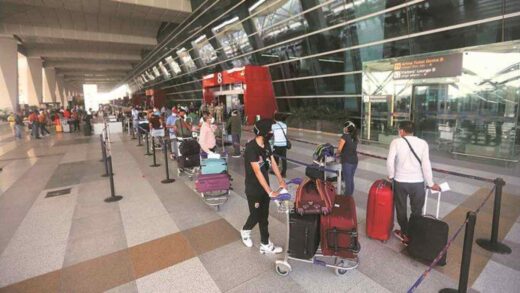
Data gathering by public agencies picks up even as the law hangs fire
01-09-2022
By Admin
Data gathering by public agencies picks up even as the law hangs fire
Data gathering by public agencies picks up even as the law hangs fire
- Data gathering by public agencies picks up even as the law hangs fire
GS Paper 3
- Syllabus:Internal Security/ Governance
- civil Aviation Ministry’s facial recognition system -DigiYatra MeitY’s proposal to share non-personal data collected by the government with start-ups and researchers
- CERT-In’s mandate asks virtual private network (VPN) service providers to store data of their users
- Department of Telecommunications (DoT) (2021): Telecom operators and internet service providers to maintain commercial and call detail records for at least two years (instead of 1 year currently)
- Contact tracing app Aarogya Setu and collected data like their names, phone numbers and location.
- Karnataka High Court in October 2020 ordered that the app cannot be made mandatory.
- Instances of increasing efforts for Data Monetization:
- IRCTC released a tender detailing its plans to monetize its bank of passenger data (including sensitive data such as mobile numbers, email, and passwords) for doing business with government and private entities. (now withdrawn) MeitY had floated a draft India Data Accessibility and Use Policy which proposed that data collected by the Centre that has “undergone value addition” can be sold in the open market for an “appropriate price”. (now withdrawn)
- The Ministry of Road Transport (2020): Bulk Data Sharing Policy, under which the ministry used to sell vehicle registration data ( Vahan) and driving license data (Sarathi) to private and public entities. (Now Scrapped)
- Previously, the government withdrew the Data Protection Bill, 2021, saying that it will soon come out with a “comprehensive legal framework” for the online ecosystem.
- The bill laid down a framework for consent-related mechanisms before gathering data and how personal data was supposed to be handled by various entities and provided for are course mechanism in case a person’s data was compromised.
- Fundamental issue in treating citizens’ data as a “wealth resource”:
- The 2018-2019 Economic Survey of India referred to data as a ‘ public good’
- . By definition, that means it should be treated as a ‘non-excludable and non rivalrous public good’ and not traded as if it were a commodity.
- Data is not a‘ sovereign wealth resource’: Treating it as such will lead to attempts to accumulate, and subsequently monetise large volumes of data, without data protection law.
- Violating SC order (Puttaswamy Judgment 2017):‘Right to Privacy’ as a fundamental right.
- Conclusion: The government’s primary concern should be service delivery and safeguarding the information it gathersfrom citizens towards this end. Its key objective should not be to monetize this data for profit.
